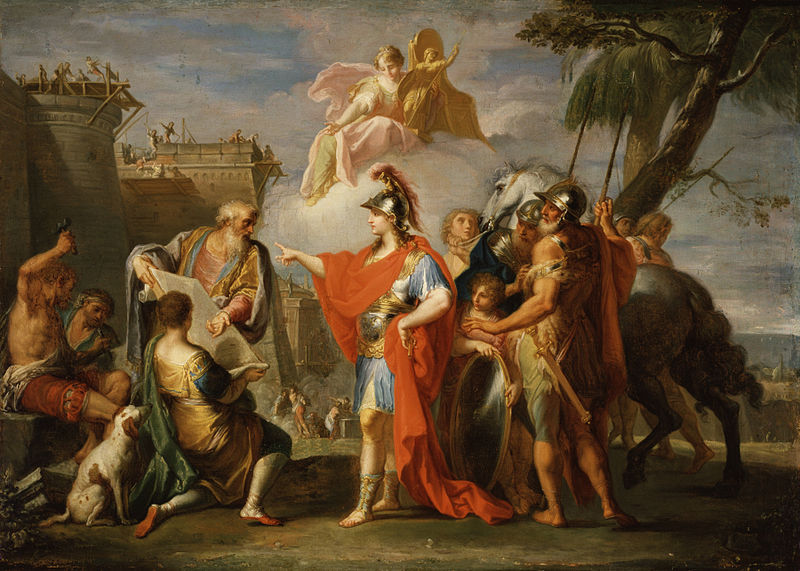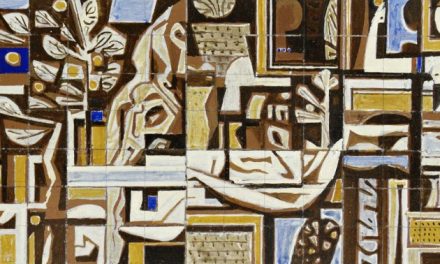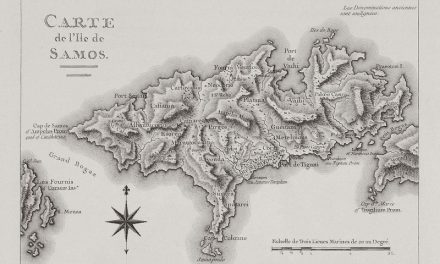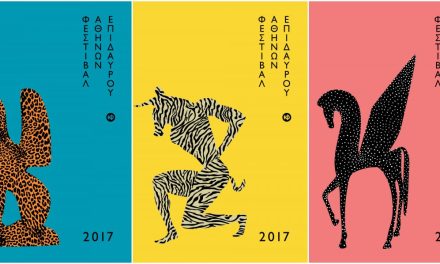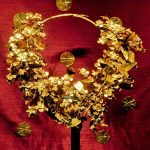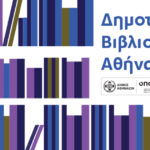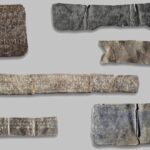There are countless words of Greek origin that you might use every day without even realising it; among these are many proper nouns, from given names to geographical names. We recently published an article listing some examples of countries with names of Greek origin; below you will find a few examples of international cities with Greek names or names of Greek origin. We include cities from Europe, Asia and Africa, while a separate list with American cities and towns will soon follow.
Alexandria (Egypt)
Alexandria was founded in c. 331 BC by Alexander the Great, king of Macedon and famous for his unprecedented military campaign through Asia and northeast Africa; during his conquests, Alexander founded over 20 cities, usually named after himself; most of them no longer exist, or have had their name changed (i. e. Kandahar in Afghanistan). Alexandria in Egypt, the most renowned of these cities, became an important center of Hellenistic civilisation and remained the capital of Ptolemaic Egypt and Roman and Byzantine Egypt for almost 1,000 years. It is still the second-largest city in Egypt, the largest city on the Mediterranean and a major economic center.
Even in Arabic (al-ʾIskandariyya) and Egyptian Arabic (Eskendereyya) the city’s name has the same meaning, as ʾiskandar means Alexander in Arabic. The Greek name Alexander, made famous by the legendary king, is a compound word meaning “Defender of men”, from the verb aléxein, “to ward off, to avert, to defend” and andros, the genitive case of the noun anḗr, “man”.
Ankara (Turkey)
In Phrygian and Greek, angira means ship anchor – it is actually the origin of the word “anchor” itself. According to some legends, Ankara is where Phrygian King Midas found an anchor.
Kherson (Ukraine)
Kherson was founded in 1778 by Grigori Aleksandrovich Potemkin, on the orders of Catherine the Great. The name Kherson is a contraction of Chersonesos, meaning “peninsula”, an ancient Greek colony founded approximately 2500 years ago in the southwestern part of Crimea. In compliance with the Greek Plan (an early solution to the Eastern Question which was advanced by Catherine the Great in the early 1780s), several newly founded towns in New Russia were given Greek names at the time.
Mariupol (Ukraine)
After the Russo-Turkish War (1768–1774), there were plans for a new town called Pavlovsk on the location of some ancient ruins in the area. However, on 29 September 1779, the city of Marianοpol (Marianopolis) of Kalmius County was founded on the site. According to the Russian authorities, the city was named after the Russian Empress Maria Feodorovna; but the city was named de facto after the Greek settlement of Mariampol, a suburb of Bakhchisaray. The name was derived from the Hodegetria icon of the Holy Theotokos (Virgin Mary). The second part of the name, polis, is the Greek word for “city”. In 1780 Russian authorities forcefully relocated great number of Orthodox Greeks from Crimea to the Mariupol area.
Messina (Italy)
Messina is the third largest city on the island of Sicily, and the 13th largest city in Italy. Founded by Greek colonists in the 8th century BC, Messina was originally called Zancle from the Greek zaglon “scythe” because of the shape of its natural harbor. In the early 5th century BC, Anaxilas of Rhegium renamed it Messene in honor of the Greek city Messene; its name originated from the Mycenaean Greek me-za-na.
Naples (Italy)
Naples is the anglicized name of Napoli, Italy’s third-largest city; one of the oldest continuously inhabited urban areas in the world, it was first settled by Greeks in the second millennium BC. In the ninth century BC, a colony known as Parthenope was established on the Island of Megaride; in the 6th century BC, it was refounded as Neapolis (meaning “new city”), eventually becoming one of the foremost cities of Magna Graecia.
Nice (France)
Nice was probably founded around 350 BC by Greek settlers coming from of Phocaea in Anatolia, and was given the name of Nikaia in honour of a victory over the neighbouring Ligurians (Italic peoples in north west of Italy); Nike (niki) is the Greek word for victory, as well as the name of the goddess of victory. The city soon became one of the busiest trading ports on the Ligurian coast. It was definitively ceded to France in 1860, when between the Sardinian king and Napoleon III signed the Treaty of Turin.
Odessa (Ukraine)
This city as well was named in compliance with the Greek Plan of Catherine the Great. It was named after the ancient Greek city of Odessos, which was mistakenly believed to have been located here. Odessa is located in between the ancient Greek cities of Tyras and Olbia, different from the ancient Odessos’ location further west along the coast, which is at present day Varna, Bulgaria. The name Odessos is of pre-Hellenic origin.
Sevastopol and Simferopol (Crimean Peninsula)
The two largest cities in the Crimean Peninsula have also been named in compliance with the Greek Plan. Sevastopolis derives from the Greek adjective sevastos, meaning “venerable”, the traditional Greek equivalent (Sebastian) of the Roman honorific Augustus, originally given to the first emperor of the Roman Empire. The name of the city was probably chosen as a tribute to the Empress (“Augusta”) Catherine the Great who founded the city in 1783. Sympheropolis derives from the word symferon “best interest, advantage”, and signifies “city of common good”.
Stavropol (Russia)
The name Stavropol comes from stavrós, the Greek word for “cross”. According to legend, soldiers found a stone cross there while building the fortress in the city’s future location.
Sofia (Bulgaria)
The name Sofia comes from the Saint Sofia Church. The origin is in the Greek word sophia “wisdom”. The city was originally called Serdica, derived from the tribe Serdi, who were either of Thracian, Celtic, or mixed Thracian-Celtic origin. The earliest works where this latest name is registered are the duplicate of the Gospel of Serdica, in a dialogue between two salesmen from Dubrovnik around 1359, in the 14th-century Vitosha Charter of Bulgarian tsar Ivan Shishman and in a Ragusan merchant’s notes of 1376.
The Greek Orthodox Sumela Monastery at Melá Mountain in the Maçka district of Trabzon Province in modern Turkey (by Bjørn Christian Tørrissen via Wikimedia Commons)
Trabzon (Turkey)
Trabzon, historically known in English as Trebizond, is an alteration of the Ancient Greek Trapezous, from trapeza, which means “table”, referencing the table-like central hill between the Zağnos (İskeleboz) and Kuzgun streams on which it was founded. The ancient city was a Greek colony founded in classical antiquity in 756 BCE by Milesian traders from Sinope. It was one of a number (about ten) of Milesian emporia or trading colonies along the shores of the Black Sea.
Tripoli (Libya, Lebanon)
Tripoli, the capital city and the largest city of Libya, bears a Greek name that means “Three Cities”, introduced in Western European languages through the Italian Tripoli. It was founded in the 7th century BC by the Phoenicians, who gave it the Libyco-Berber name Oyat, before passing into the hands of the Greek rulers of Cyrenaica as Oea.
By the latter half of the 2nd century BC, it belonged to the Romans, who included it in their province of Africa, and gave it the name of “Regio Syrtica”. Around the beginning of the 3rd century AD, it became known as the Regio Tripolitana, meaning “region of the three cities”, namely Oea (i.e., modern Tripoli), Sabratha and Leptis Magna. In Arabic, it is called طرابلس, Ṭarābulus.
Tripoli is also known as Tripoli-of-the-West, to distinguish it from its Phoenician sister city Tripoli, Lebanon, known in Arabic as Ṭarābulus al-Sham, meaning “Levantine Tripoli”. That Tripoli had a number of different names as far back as the Phoenician age; when the Ancient Greeks settled in the city they called it Tripolis, influenced by the earlier phonetically similar but etymologically unrelated name Derbly.
Read also via Greek News Agenda: Country names of Greek origin; Vassilis Papadopoulos on the lasting influence of the Greek language; Reading Greece: A.E. Stallings on Greek Mythology as a Source of Inspiration and the Greek Language as a Landscape in Poetry
N.M. (Source: Wikipedia. Intro image: Alexander the Great Founding Alexandria, Placido Costanzi, 1736-1737, via Wikimedia Commons)

